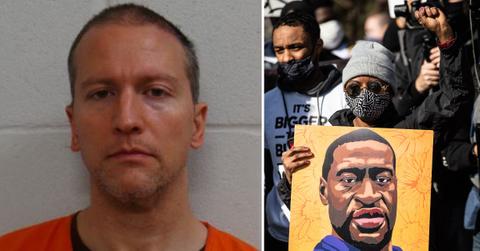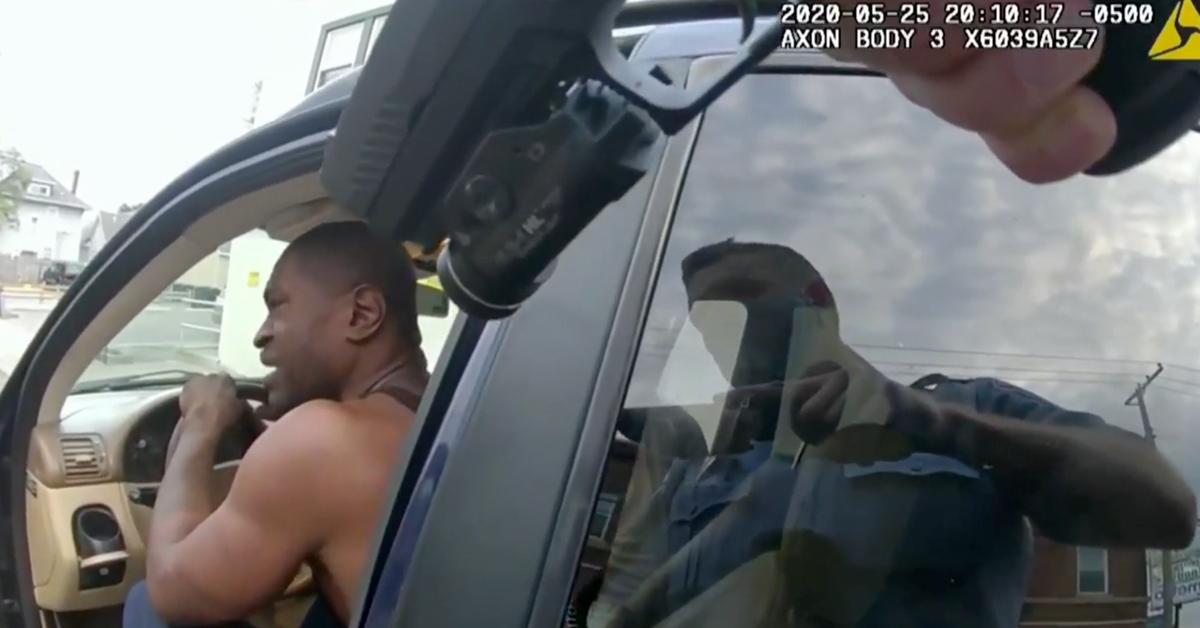Did George Floyd admit to using 'too many' drugs as police held him to the ground? Depends on who is listening.

The words George Floyd said as he was pinned to the ground came into focus during Day 8 of testimony in the trial over his death.
“I ain’t do no drugs,” or “I ate too many drugs.”
The phrases were the focus of some questioning today and the answer likely depends on who is listening. Police investigators gave their thoughts about what was said as they testified on April 7 in the trial of Derek Chauvin, a police officer accused of killing Floyd during an arrest.
During the testimony of James Reyerson, who is with the state investigative unit, the defense played a clip from the body camera of one of the officers on top of Floyd.
Defense Attorney Eric Nelson suggested Floyd says, “I ate too many drugs.”
That statement goes to the idea the defense has maintained throughout the trial that it wasn’t Chauvin who killed Floyd. Instead, a lethal combination of drugs — commonly referred to as a “speedball” —led to Floyd’s death.
Nelson asked Reyerson if he felt Floyd said, “I ate too many drugs,” and the agent confirmed Floyd did. During additional questioning, the state asked Reyerson again about the statement and played a longer version of the footage.
Reyerson then said he believed Floyd said, “I ain’t do no drugs.”
It will soon be up to the jury to decide what they heard, and even if matters in Floyd’s alleged murder. The prosecution continues to lay out its case that the officer’s excessive force killed Floyd.
Floyd died on May 25, 2020, during an arrest in Minneapolis.
Police responded to a grocery store after Floyd used a fake $20 bill. Witnesses inside the store said they believed Floyd was under the influence.
Officers found Floyd in a nearby vehicle, and he did not follow their commands. They arrested him and tried to put him in a police SUV, but Floyd said he was claustrophobic and couldn’t breathe.
The officers took Floyd to the ground, where they restrained him for nine minutes. Chauvin had his knee on top of Floyd’s neck for several minutes. The entire exchange was captured by witnesses on cell phone video.

For several minutes, Floyd was unconscious, though Chauvin held him in place. It wasn’t until paramedics arrived that police got off Floyd.
All four officers involved in the arrest were criminally charged. Chauvin is the first to go to trial and he faces charges of second- and third-degree murder as well as second-degree manslaughter.
Reyerson was one of the state investigators who review use-of-force cases. He said he was called to the scene about an hour after the incident. He spoke to the officers at city hall and took their pictures.
Reyerson revealed Chauvin’s weighed 140 pounds on the night of the incident. That indicated the officer is a slender man, much more so than he appears in the witness video.
Sgt. Jody Stiger, of the Los Angeles Police Department, also testified on April 7. He started the day before and concluded his testimony on April 7. He said Chauvin used deadly force when he didn’t need to use any. A person in the prone position with their hands cuffed can already have difficulty breathing, Stiger said.
“When you add body weight to that, it just increases the possibility of death,” Stiger said.
The defense has also previously raised the idea that the crowd around the scene was angry and a threat to Chauvin. But, Stiger said he didn’t view the group to be a danger.
DRUG TESTS
The discussion of drugs at the scene was again featured during testimony from the day’s last witnesses. Breahna Giles is a forensic scientist and tested the white pills found in the police car and the car Floyd was in when officers first arrived.
Pills were recovered in a police car that had Floyd’s DNA on them. The drugs were found in the car months after the incident when investigators again searched the vehicle. Giles said the pills tested positive for fentanyl and methamphetamine.
She also tested a pipe found in the car Floyd was in when officers arrived and it tested positive for THC — the ingredient that gets a person high from marijuana.
During cross-examination, Giles said the pills she tested were part of a bigger pill and there were indications there were other substances in the pills.
Though, Susan Neith, a forensic scientist, also took the stand and said the concentration of drugs in some of the pills was very low compared to others found on the market. For example, some pills from the Floyd case had a methamphetamine concertation below 3 percent, which can be around 90 percent in many other pills.
Become a Front Page Detective
Sign up to receive breaking
Front Page Detectives
news and exclusive investigations.
